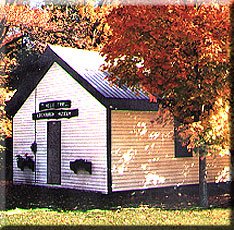If a district judge in the Eighth Circuit varied downward to probation, when the Guideline range in a conspiracy to commit mail and wire fraud, tax evasion, and conspiracy to commit tax fraud case was 135 to 168 months in prison, would you think the Eighth Circuit had gone nuts if the Court affirmed that huge deviation? See Douglas Berman, Based on additional 3553(a) justifications, Eighth Circuit affirms “profound downward variance to a sentence of probation” in multi-million dollar fraud (August 29, 2014).
Professor Berman provides this gloss:
Especially in the years right after Booker, the Eighth Circuit garnered a (seemingly well-deserved) reputation as one of the circuits most likely to reverse below-guideline sentences as too lenient. But after a number of those reversals were thereafter reversed by the Supreme Court in cases like Gall and Pepper, it seemed the Eighth Circuit became somewhat more willing to uphold below-guideline sentences, and today in US v. Cole, No. 11-1232 (8th Cir. Aug. 29, 2014) (available here), a unanimous panel has upheld a probation sentence in a high-loss, white-collar case that in the past I would expect to see reversed based on the government’s appeal.
. . . .
This ruling strikes me a one-in-a-million outcome: I cannot recall another case (out of the nearly million cases that have been sentenced in the federal system since Booker) in which the defendant faced a guideline range of 11 to 14 years and received a sentence of probation. This outcome seems all that much more remarkable given that this huge (and now declared reasonable) variance was in a a case in which the defendant did not plead guilty or provide substantial assistance to the government in any way and involved “one of the largest corporate frauds in Minnesota history and was also a significant tax fraud.”
Because this Cole case seems remarkable in many ways, and because it likely will be (and should be) cited by nearly every white-collar offender facing federal sentencing in the months and years ahead, it would not shock me if the Justice Department seriously considers pursuing an appeal up to the Supreme Court.
Here’s my tentative thoughts: (1) after the Circuit initially remanded for further elaboration, Chief Judge Davis, the sentencing judge, must have really covered his bases when discussing the section 3553(a) factors, although Court of Appeals provides little in the way of specifics regarding what the Court thought was persuasive; (2) the fact that Judge Murphy, former Chair of the Sentencing Commission, sat on the panel affirming the variance is extremely important–her stamp approval carries much weight; and (3) the opinion written by Judge Sheperd affirming the variance is short on detail and the reasoning consists of little more than a few conclusory tidbits. The brevity and weakness of the opinion could, and probably should, consign this case to the “one off” dustbin.
For criminal practitioners, particularly in the Eight Circuit, I am interested in your take. Has the Circuit gone nuts?
RGK






